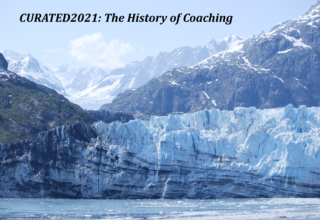
REFLECTIONS ON COACHING’S FUTURE
In times of great change, the learners will inherit the Earth while those attached to old certainties will find themselves beautifully equipped to deal with a world that no longer exists. – Eric Hoffer
Given the speed and manner in which the field of coaching has grown, it would be risky to assume that its future growth will be either linear or uniform. The field of coaching is, in many ways, an unprecedented phenomenon that requires new levels of thinking about its practices, its nature as a collective, and its priorities as a philosophical and professional force. I would contend that many of the historic struggles around positioning within coaching must give way to broader and more inclusive approaches in order to deal with the complex challenges facing our clients, our organizations and our society. If coaching proves unable to adequately meet the rapidly changing needs of our time, it will give way – for better or worse – to other means.
However, if coaching evolves such that it can increasingly respond to these needs, it will continue to serve an invaluable function for people and the planet. In order to so, coaches must increasingly do for themselves what they do so well for others; they can only authentically and persuasively lead in these times if they have been down these roads themselves. Coaches can no longer hide behind the belief that “the client has all the answers.” If they did, they wouldn’t need coaches. As such, I see an increasing need to make room in coaching for the provision of expertise and leadership in helping clients navigate the complexities of their life and work. This echoes Ram Charan’s comments that,
future leaders will need constant coaching. As the business environment becomes more complex, they will increasingly turn to coaches for help in understanding how to act. The kind of coaches I am talking about will do more than influence behaviors; they will be an essential part of the leader’s learning process, providing knowledge, opinions, and judgment in critical areas. (Coutu & Kauffinan, 2009b, p. 28)
As professionals who coach, we need to be clear about what role would be most empowering, liberating and effective for this client in this moment. It is plain to see that there is plenty to be done to harness the tremendous energy that has been unleashed through the rise of coaching. As with all crossings of a threshold, the task is not for the ill-prepared. This issue was conceived to help identify some of the critical issues and offer some guidance in support of our success in this next phase.
Bergquist’s (2009b) second article identifies some of these key issues, echoing recent work I did with Diane Brennan, Past-President of the International Coach Federation (Drake & Brennan, 2008), in identifying trends in coaching. For example:
- How will coaching adapt to a world with less discretionary income, increasing disparities between rich and poor, and emerging markets with millions of young leaders?
- How will coaching adapt to serving clients in an increasingly virtual, socially networked, hyper connected, and search-driven world?
- How will coaching adapt to our increased understanding from the neurosciences and respond to our increased abilities in bio-engineering?
- How will coaching adapt in the midst of the increasing tensions between relativism) modernism and fundamentalism at cognitive, political and cultural levels?
- How will coaching help people, organizations and communities move to a more sustainable life in a post carbon world?
- How will coaching adapt its message of hope and possibility in a world that is increasingly volatile, uncertain, and asymmetric?
















